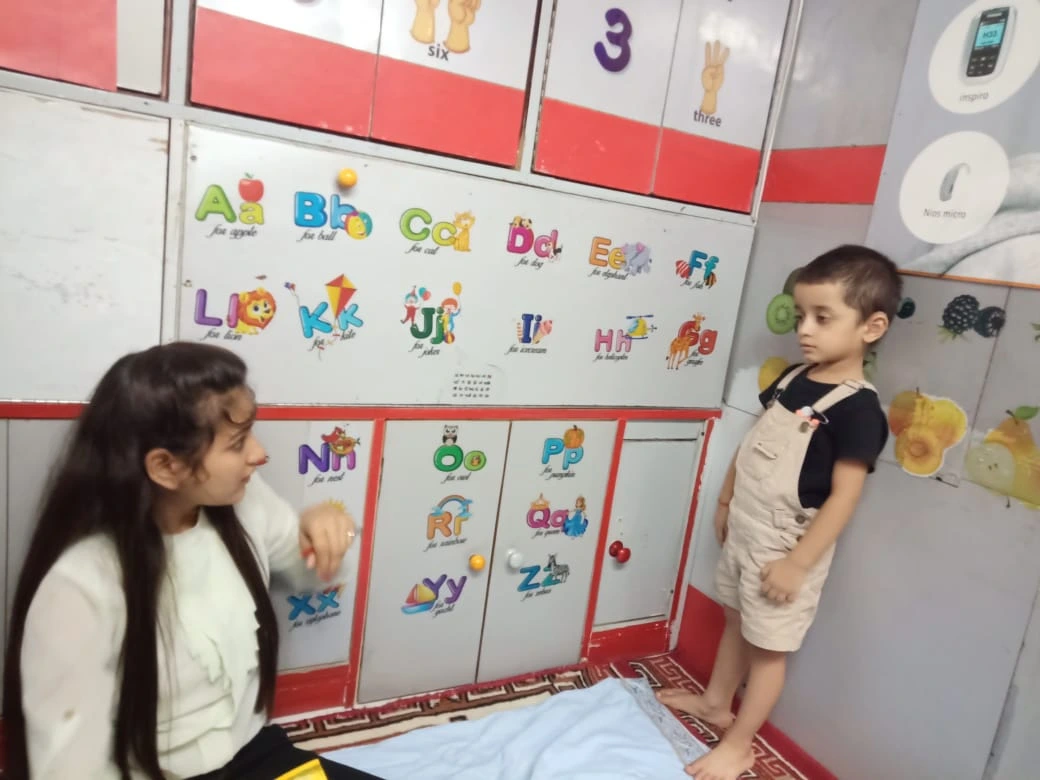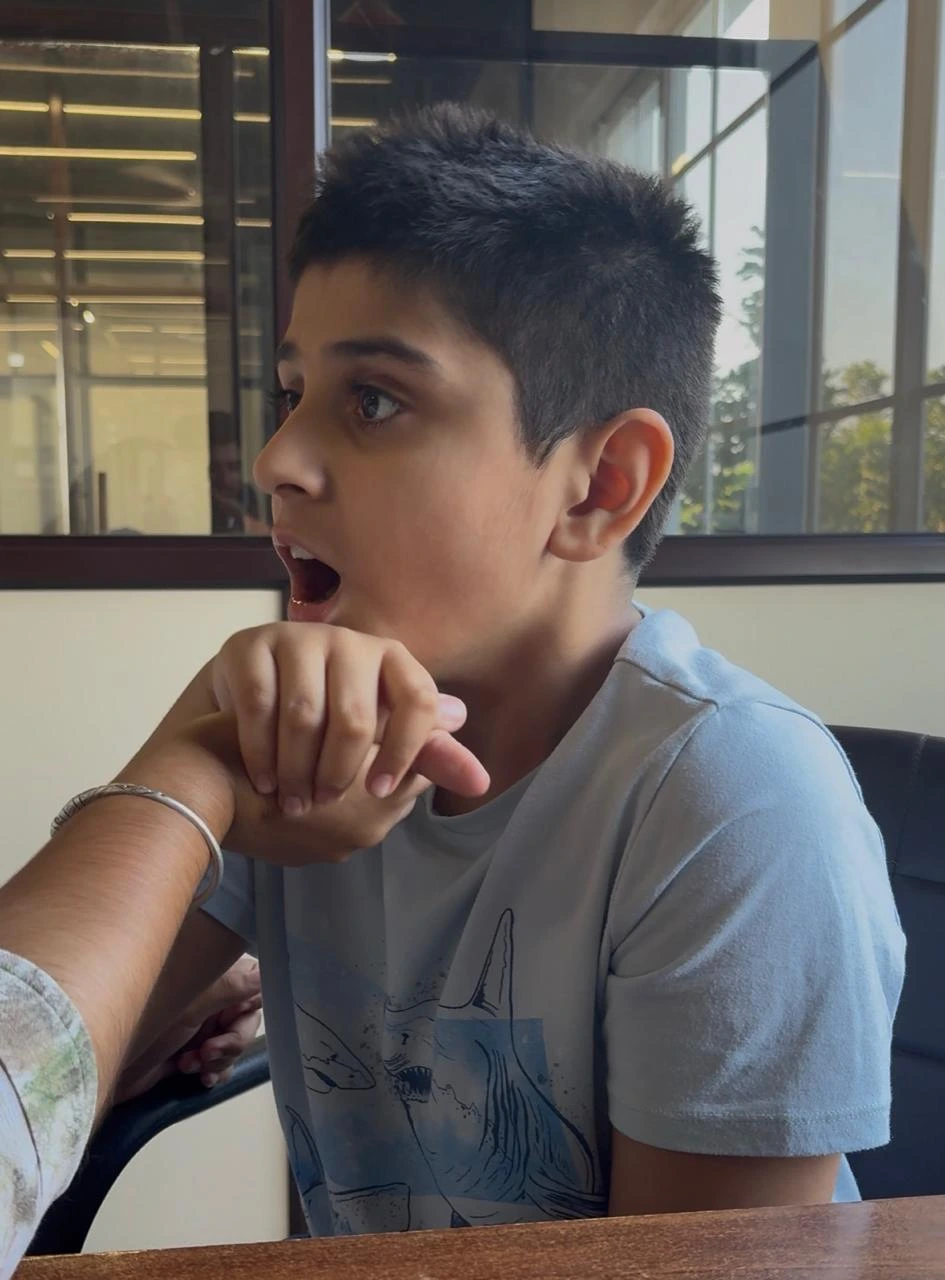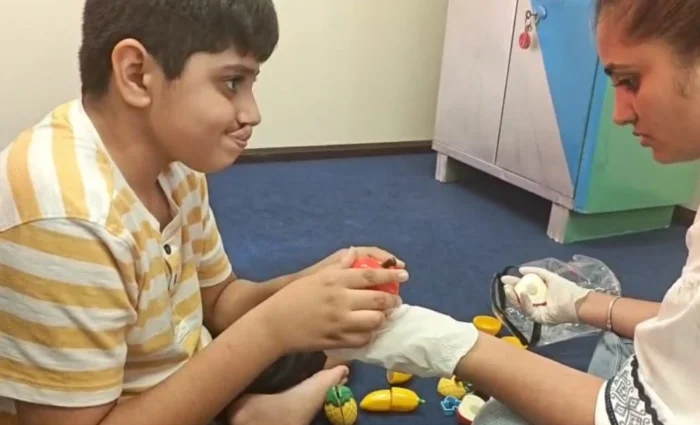Speech therapy is a treatment that helps people improve their ability to speak, understand, and communicate clearly. It also helps with voice and swallowing disorders.
Speech Therapy For Children
Children may need speech therapy if they
a. Start Speaking late
b. Have unclear speech or pronunciation errors
c. Stammer or stutter
d. Struggle to understand language
e. Have hearing related speech delay
f. ADHD
g. Autism Spectrum Disorder
Speech Therapy For Adults-
Adults may require therapy after
a. Stroke or brain injury ( Aphasia)
b. Voice Disorder (hoarse, weak or strained voice)
c. Neurological condition such as Parkinson disease
d. Speech clarity or fluency problems
e. Hearing loss or cochlear implant rehabilitation
At Times Health Care, speech therapy is provided for a wide range of conditions, ensuring each individual gets personalized care and the right approach for improvement. Below are some of the major disorders.

Types of speech disorders:
Delayed Speech and Language Development: Children with delayed speech and language skills may struggle to express themselves or understand others. Early intervention helps them catch up and communicate more effectively. Treatment involves speech and language therapy, SLPs help the child Practice sounds, wards and communication strategies. Parents and case givers also play an important role by engaging the child in conversation reading a loud and providing a language.
Hearing Impairment (HI): Hearing lase can significantly impact speech clarity and development Therapy focuses on improving speech patterns with the help of assistive devices and specialized training. The use of hearing aids on cochlear implants is often combined with therapy maximize hearing potential and uses various techniques such as auditory training to improve listening skills, speech reading (lip-reading) to understand spoken language visually and articulation exercise to enhance speech clarity.
Misarticulation: Misarticulation is the incorrect production of speech sounds, which can make speech unclear. In speech therapy treatment focus on identifying the errors and practicing. Correct pronunciation through exercises, repetition and auditory feedback.
Stuttering: Therapy for stuttering improves fluency and confidence through breathing techniques, pacing strategies, and relaxation methods.
ADHD (Attention deficit hyper activity): ADHD is a neurodevelopment disorder that effect attention, self-control and activity levels. Children with ADHD often face challenges in maintaining attention and organizing thoughts. Speech therapy supports them in building better communication and social interaction skills.
Intellectual disability: Intellectual disability is a condition in which a person’s mental development is slower than normal such individuals may have difficulty in learning, understanding, problem-solving and performing daily life activities. Speech therapy helps them improve their communication, understanding pronunciation and social interaction skills.
Autism (Autism spectrum disorder: Autism is a developmental condition that affects how a person communicates, interacts, and behaves. Children with autism may have difficulty understanding language, expressing themselves, making eye contact, or interacting socially. They may also show repetitive behaviors or have strong interests in specific things. Speech therapy improves language, social communication, and the ability to use words meaning fully in different situations. They may include teaching non-verbal communication like (gestures or pictures), speech sound, and conversation skills.
Aphasia: Aphasia is a language disorder that happens when the part of the brain responsible for language is damaged – Usually due to a stroke, head injury, or brain disease. People with aphasia may have difficulty speaking, understanding, reading or writing. Speech Therapy help individuals relearn language skills improve word finding and strengthen communication abilities (speech exercises, naming activities, listening and Comprehension tasks)
Cerebral Palsy (CP): Children with CP may face difficulties in Controlling the muscles needed for speech. It happens when the brain is damaged before, during or shortly after birth. Children with CP may have trouble walking, speaking, eating, or controlling body movements. Speech Therapy help them with speech clarity, breathing control, voice, and communication stills and works on strengthening motor control.
Dysarthria: Dysarthria is a speech disorder caused by weakness or poor control of the muscles used for speaking- such as the tongue, lips, vocal cards, or diaphragm, It often occurs due to brain injury strokes neurological disease. Dysarthria may have slurred, slow or unclear speech but their language and thinking abilities are normal. Speech therapy helps improve muscles strength, breath control, speech clarity and pronunciation.

Dementia: Dementia is a progressive brain disorder that affects memory thinking, behavior and communication. It usually occurs in older adults and is most commonly caused by alzheimer’s disease. People with Dementia may forget things, have trouble speaking and understanding language. Speech therapy work to improve communication, memory and understanding skills and teach strategies to express needs and thoughts more clearly.
Voice disorder: Voice therapy helps individuals with hoarseness, pitch issues, or strain. It can be caused by overuse, infections, Vocal-card nodules or other conditions. Speech therapy helps improve voice quality, pitch, loudness, vocal endurance. Therapy may include breathing exercises, vocal cord relaxation, proper voice techniques and reducing strain while speaking.
At Times health care, we believe that every voice deserves to be heard with confidence. Whether it’s your child taking their first steps in communication or an adults recovering speech after a health condition, our expert therapists are here to guide you through the journey. Don’t let speech and language challenges hold you or yours loved ones back.


